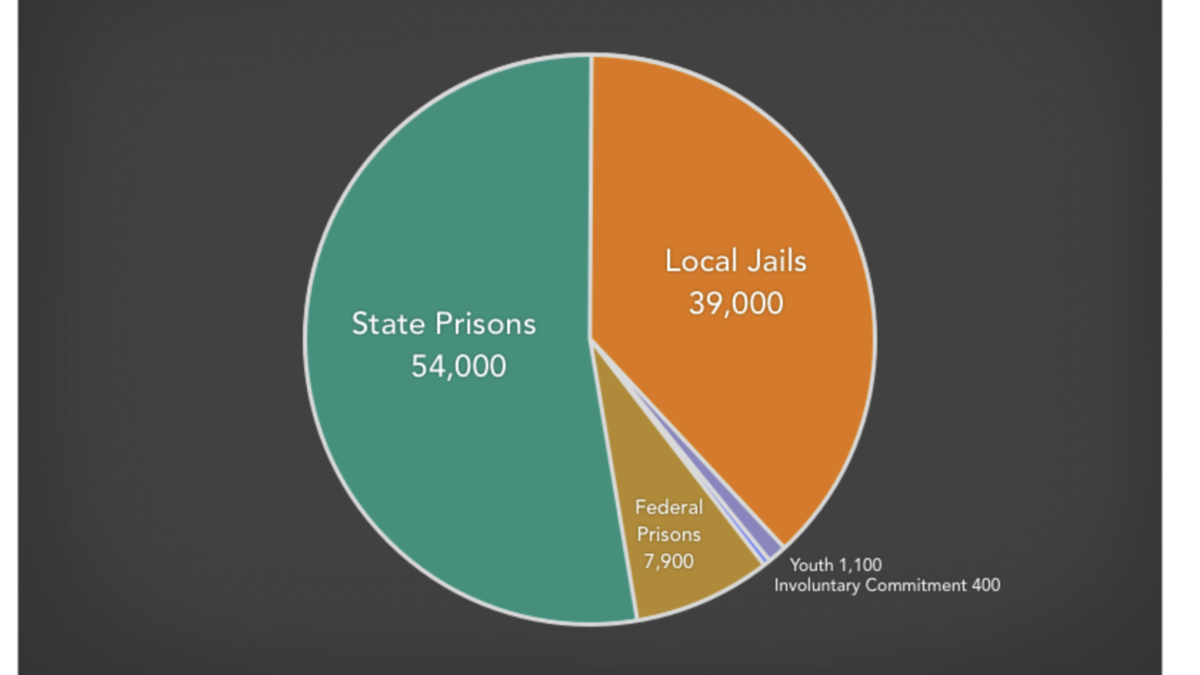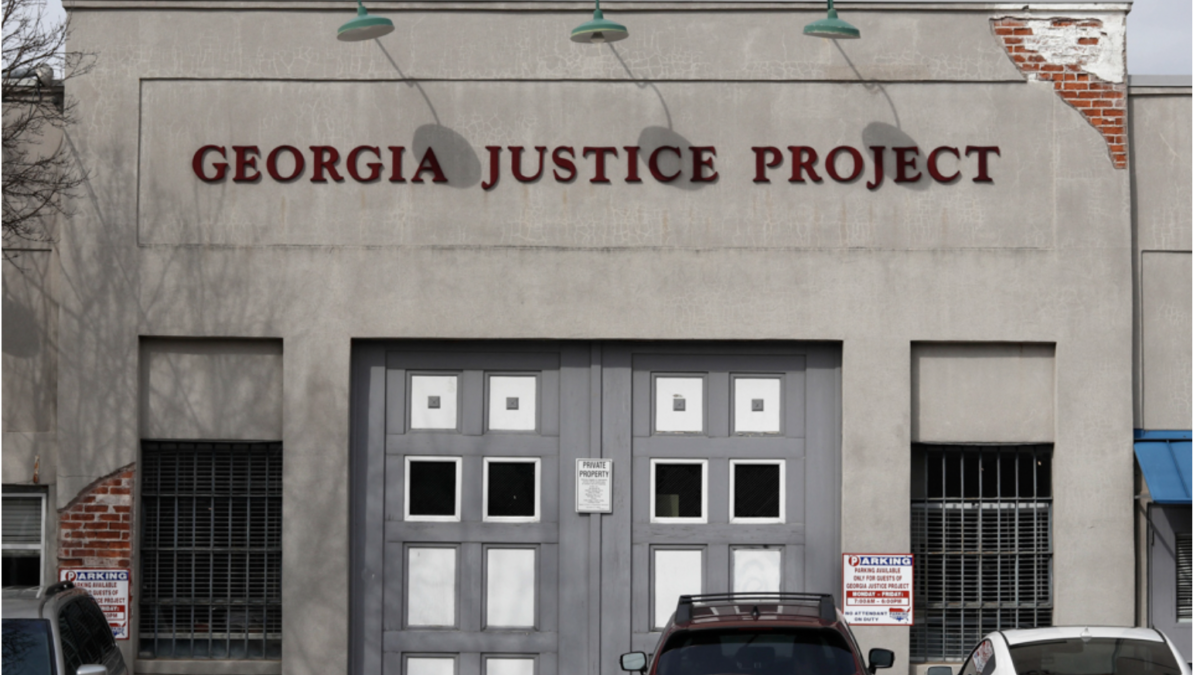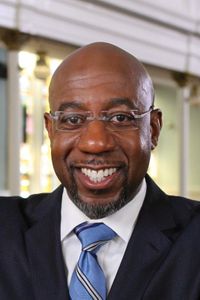Often times, there is this belief that there is not much overlap between the Christian Church and Prison. Despite many of the church’s teachings aligning with the ideals of social justice, many individuals see it as a form of Divine Intervention when an individual is placed in the incarceration system. In Darrin Sims’ “The Cross and The Criminal Record”, he highlights first the story of Barabbas and his connection to Christ, as well as how much of what society knows of his story ends once he is released. In this same way, our own society has our own Barabbas’. We too have people who have been released from Prison and have stories that have gone cold. It is easy to shift blame onto others instead of finding and creating solutions. This blog post will focus on the Black Church community in Atlanta and the ways in which they may have overlooked incarcerated peoples, whether there are measures put in place to help someone during and out of the system, and how the current religious leaders have been involved in the fight against incarceration .
In Georgia, according to the findings of PrisonPolicy.Org currently there are 102,000 people incarcerated. Out that number, 54,000 are in State Prisons, 39,000 are in Local Jails, and 7,900 people are in Federal Prisons. In addition to these already large number, 1,100 people are in Youth Detention centers and 400 are in involuntary commitment. As a state, Georgia has one of the highest prison populations, with many of those incarcerated being men of color. To take it even a step further, in the state of Georgia, you begin being tried as an adult at the age of 17. This alone widens the net of incarceration and leaves more bodies susceptible to the capitalistic scheme that is known as our prison system. These numbers, as well as what is known as racial climate of our society proof for Georgia’s incarceration problem and who better to help address larger social conflicts than the Black Church.

Many people do not know this, but I am the daughter of a Pastor and my family is very religious. Much of my moral compass is encompassed in what I was taught in Church, as well as what I have interpreted in the Bible. With that being said, I was excited to work alongside Darren Sims and learn more about Georgia Justice Project. One thing that really drew me to Mr. Sims was the way he was able to marry his religious upbringing with the public facing work he was doing. Mr. Sims is from Ferguson, Missouri and it was the slaying of Mike Brown that really got him into his current line of work. Mr. Sims was in a search for answers to why these social injustices were occuring, thus found himself in seminary school, namely Candler School of Theology in Atlanta, GA. While in Atlanta, what shocked him was seeing just how many young Black bodies were a part of the prison system. This disheartening reality for many truly fueled Mr. Sims’ fire and prompted him to get more involved in eradicating the current model for prison, wherein his focus was the post prison reality. That is also how we arrive at the Georgia Justice Project.
The Georgia Justice Project, or GJP, is a nonprofit and non partisan organization focused on prison support. They offer wraparound services such as job assistance services, social workers, childcare, and expungement services. What makes GJP very unique is the fact that they are the only organization in Georgia working on record expungements. Through this organization, people are truly given a second chance. One might even call it redemption, which is an idea ever present in Christian theology. GJP works with people to and through the prison system, and have even worked to pass bills such as Senate Bill 288, which is an Expungement Bill, and Senate Bill 105, which reduced the number of Georgian’s serving lengthy probation sentences. GJP and Mr Sims have made huge strides in in the fight against Mass Incarceration and specifically looking at Mr. Sims, he was able to bring together his activism and faith to create change. With that being said, I do wonder why the same cannot be said for the majority of Black Churches in GA.

While doing research for this blog post, it was disheartening to learn that despite a vast majority of those incarcerated being Black men, there is not a larger outcry from churches and their leaders. It was incredibly hard to find resources that churches had, as well as find Black pastors within Geogia who were actively doing public facing work. The Black Church has been crucial to Black culture and the idea of hope. In the height of the Civil Rights Movement, as well as the overall fight for Black Liberation, it was the church that brought people a form of solace and it was leaders such as Rev. Dr. Martin Luther King Jr. who stepped up and led efforts The same way Mr.Sims is able to marry his faith with his activism, I wish I could see more of the work within the church community in Georgia. Currently one person leading the efforts and stirring up conversation around the issue is Senator Rev. Raphael G. Warnock , Senior Pastor of the Historic Ebenezer Baptist Church. Continuing the legacy of MLK Jr., Rev. Warncok has held conversations centering around mass incarceration, and during his 2019 discussion at Harvard Memorial Church he shared his belief that Mass Incarceration is currently the most pressing civil rights issue and addressing the way the system targets men of color is a “moral imperative” (Walsh ,Harvard Gazette). As a pastor, activist, and now Senator, Warnock has been able to use his intersectional identities to his advantage in the fight against mass incarceration and has even criticisized follow leaders for not taking a more prominent role in activist efforts. When asked about the role of the church in terms of social justice, as well as his thoughts on his counterparts, in a 2019 article from The Atlanta Journal -Constitution he said “ ‘The problem is that ministers in most American pulpits have been silent on issues of justice, relegating such concerns to the realm of politics,’ he said.” (Staples, AJC). Often, church leaders stay away from social justice efforts because of this belief that faith can not be mixed with politics, which is odd because many political leaders are people of faith themselves. This absolves the leaders and their churches from an issue that affects them, as well as negates the many interpretations of Christianity as being a religion of liberation and redeeming the social pariah. Warnock was aware of this and continued to say, “It’s a truncated logic that says these are social issues and ministers are to deal with issues of faith. The Bible clearly says otherwise.’ ” (Staples, AJC). Theologically, pastors hold a certain responsibility to their parishioners. While they are primarily expected to be in charge of the salvation and help lead people on the right path, there will be times where their members will need their help on issues outside of church. Part of the human experience is understanding that mistakes will be made and as an individual tasked with ensuring that mankind takes the right path but also supporting them through faith, the issue of mass incarceration is definitely one that concerns pastors.

Thinking specifically about the Black Church in Georgia, the fact that more leaders are not speaking out about mass incarceration, or providing resources for incarcerated individuals is concerning. Georgia, with it rich culture and history, is home to the third largest population of Black people in America. In that same breath, it is Black people who are filling up these prisons in Georgia. If the Black Church is primarily focused on serving and helping the Black community, then for some leaders to not speak up on the issue is a violation to the promises they made. Even if their own members are not incarcerated, given the numbers and statistics surrounding mass incarceration, at least one member is in some way affected, thus given their obligation to said infected member, the issue now has a connection to them. Basically, there is no real way that leaders of Black churches can escape the responsibility they have to ending mass incarceration. While I did chastise Black Church leaders for not using their voice as much as they could, I will acknowledge that this is not the case for all churches in Georgia. I was able to find the organization Ending Mass Incarceration, which is an organization that helps faith leaders to tap into their agency in the fight of mass incarceration. Their website provides resources for things such as the school to prison pipelines, the process of expungement and more. As I scrolled down the website, I was pleased to see multiple groups such as Ebenezer Baptist Church, The Episcopal Diocese of Atlanta and more involved with this organization. This let me know that there are efforts being made on the end of religious leaders to enact change. https://emi.odyssey-impact.org
While some work is being done by the Black Church in Georgia to adresss mass incarceration, not enough is being done. The mere fact that I was able to find concrete programs in churches outside of Ebenezer means that bot enough is being done to help solve the issue that affects all of us. Moving forward, I would want pastors to see the roles they play in grander society, in addition to the duties they have to their parishioners.
Leave a Reply